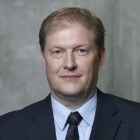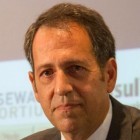Pre-Conference Workshop A7
Summit: Strategy under Uncertainty: Futureproofing Higher Education
Date Wednesday, 6 Dec Time – Room: Charlottenburg 1 Price: free of charge Status: fully booked
Workshop leaders

Paul Bacsich
Founder and Managing Director, Matic Media Ltd, UK
Paul Bacsich is the Founder and Managing Director of Matic Media Ltd, a consultancy active in online learning since 1996. In addition he consults for the SeroHE division of Sero Consulting Ltd as a Senior Associate.
He has a long-standing interest in Open Education via a large EU project (POERUP) and several EU/European Parliament studies: he is Co-Coordinator of the Open Education Working Group and an Ambassador for the global advocacy of OER and a member of the OER Advocacy Committee of ICDE.
He is a co-founder of Multeversity, a start-up in online/blended post-secondary education which aims in due course to be an accredited university and higher vocational provider. He also has had involvement in other early-stage online providers over the last six years and has done several studies of them.
His current main publicly visible activities are in leadership in e-learning, via the Erasmus+ D-TRANSFORM project, and Open Education policy analysis across EU Member States (he expects the report will be published soon). These draw on and continue his work over 10 years work on EU open and distance education projects.
In addition to his public work he consults for a number of international, government, commercial, venture fund and university clients on market/competitor/pricing research, policy, education funding models and retention strategies. He has recently finalised a report on credit recognition and transfer for online masters' programmes, for a university client in Canada.
In 2015-16 Paul chaired the review panel for the Vision and Strategy Appraisal of the UK Open University Library, where he interviewed over 70 staff and students and carried out substantial comparative and policy research. He also chaired the E-learning review panel for Uppsala University, with three days of intensive meetings and presentations, and spent four months chairing a task force for the National Forum for Learning and Teaching in Ireland to prepare a scoping document on infrastructure issues related to online learning. He also continued work on reviewing European and Anglophone country activity in ICT in higher education for national agencies in the UK and will soon start work on another review of a department in a leading UK university.
Some of his recent thinking can be found in his UNESCO policy brief on "Alternative Models of Education Delivery" and in a paper for the "Open Education 2030" higher education workshop run by the EU. He remains very interested in "Multiversity" models (see Multeversity) and competence-based provision, based on his earlier studies on "Time and e-learning", developed from a speech given in Austria, a country with which he has increasing links.
In the university phase of his career he was a researcher at Oxford University, had many roles over 25 years at the UK Open University, and was for seven years Professor of Telematics at Sheffield Hallam University and then a Director at the UK e-University. He was also Visiting Professor at Middlesex University and Advisor to the Rector of the Arab Open University.
He has knowledge of and/or experience in higher education in many developed countries.
Links
http://www.serohe.co.uk/team/professor-paul-bacsich/
http://iite.unesco.org/pics/publications/en/files/3214709.pdf
https://independent.academia.edu/PaulBacsich
https://www.linkedin.com/in/bacsich/
Links
http://www.sero.co.uk/people/paul/http://www.matic-media.co.ukhttp://bacsich.typepad.com/elearning/

Gilly Salmon
Professor of Innovation & Transformation, University of Liverpool Management School, UK
Professor Gilly Salmon has been a learning innovator for more than 30 years and is one of the world’s leading thinkers in digital and blended learning.
She researches and publishes widely on the themes of innovation and change in Higher Education and the exploitation of new technologies of all kinds in the service of learning.
She is internationally renowned for her significant contributions to education futures, including research, innovation, program design, teaching methods and the use of new technologies. From 1st September 2017, Professor Salmon will be at the Management School at the University of Liverpool.
Previously, she was Pro Vice-Chancellor of Education Innovation, at the University of Western Australia. Prior to her appointment at UWA, she was Pro Vice-Chancellor of Learning Transformations at Swinburne University of Technology, Melbourne, Australia and before that, Executive Director and Professor (Learning Futures) at the Australian Digital Futures Institute, University of Southern Queensland, Australia. Previously she was Professor of E-learning and Learning Technologies, and Head of the Beyond Distance Research Alliance and the Media Zoo, at the University of Leicester in the UK, and prior to that with the UK Open University Business School.
See her web site www.gillysalmon.com
Links
Speakers

Kay Lipson
Executive Director - Growth Initiatives, Online Education Services (OES), Australia
Kay is currently the Exectutive Director Growth Intiatives for Online Education Services (OES). Founded in 2010, OES is a public-private partnership between SEEK, who have matched over 150,000 students with their ideal course and Swinburne University of Technology, a pioneer in online education with over 20 years’ experience.
The partnership’s first endeavour, Swinburne Online, was launched in 2011 with 10 undergraduate courses in the fields of Business, Social Science and Communication. By 2017, Swinburne Online had expanded its offerings to include 21 undergraduate and postgraduate university courses, five TAFE courses and offerings for international students, with over 10,000 students currently enrolled.
Kay’s discipline area is Statistics, and she has previously undertaken academic roles at the University of Melbourne, Monash University, and Swinburne University of Technology. Her most recent academic role in leadership was as Dean of the Faculty of Higher Education, Lilydale, at Swinburne University of Technology, from 2009 to 2011.
Links

Ben Nelson
Founder and CEO, Minerva, USA
Ben Nelson is Founder, Chairman, and CEO of Minerva, and a visionary with a passion to reinvent higher education. Prior to Minerva, Nelson spent more than 10 years at Snapfish, where he helped build the company from startup to the world’s largest personal publishing service. With over 42 million transactions across 22 countries, nearly five times greater than its closest competitor, Snapfish is among the top e-commerce services in the world. Serving as CEO from 2005 through 2010, Nelson began his tenure at Snapfish by leading the company’s sale to Hewlett Packard for $300 million.
Prior to joining Snapfish, Nelson was President and CEO of Community Ventures, a network of locally branded portals for American communities.
Nelson’s passion for reforming undergraduate education was first sparked at the University of Pennsylvania’s Wharton School, where he received a B.S. in Economics. After creating a blueprint for curricular reform in his first year of school, Nelson went on to become the chair of the Student Committee on Undergraduate Education (SCUE), a pedagogical think tank that is the oldest and only non-elected student government body at the University of Pennsylvania.
Links

Ari Jónsson
Rector/President, Reykjavik University, Iceland
Dr. Ari Jonsson is the president of Reykjavik University; a private non-profit university in Iceland that focuses on education, research and industry collaboration in the areas of technology, business and law.
Dr. Jonsson completed his doctoral degree in Computer Science from Stanford University in 1997, with focus on artificial intelligence and autonomous decision- making. He then joined NASA as a research scientist, working on the development of automated technology to improve the efficiency and reliability of spacecraft operations. During his tenure at NASA, he managed a number of research and development projects, contributing to missions such as the Deep Space One experimental spacecraft, the Mars exploration rovers Spirit and Opportunity, and the operations of the International Space Station.
In 2007, Dr. Jonsson moved to Reykjavik University as the Dean of the School of Computer Science. In January 2010, he became the President of the university and has served in that role since then. Dr. Jonsson is active in policy development and has served for over seven years on the Icelandic Science and Technology Policy Council.
Dr. Jonsson actively supports the innovation and entrepreneurship environment in Iceland. He is the Chairman of the Board for one startup and a board member for a few other companies.
Links

David Lenihan
President & CEO, Ponce Medical School, USA
Dr.David Lenihan is one of the leading minds in medical education. He has been tasked with creating the world’s leading health sciences learning environment, one which not only results in unprecedented student outcomes but is, in addition, based on an interprofessional model, and deployed at an international scale.
Dr. Lenihan has done this before, most recently as Dean at Touro College of Osteopathic Medicine (NY), where he changed the way medical education is taught: by first “flipping” the classroom (faculty deliver lectures via iTunes and then moderate class discussions), then developing a dynamically adaptive curriculum that changes for each student based on individual knowledge and ability and, finally, by linking the curriculum with real-time, systemic assessment of both students and faculty.
Minute-by-minute monitoring of students’ knowledge enables the school to both improve student outcomes at the same time as reduce “drop out” rates by getting targeted help to students early and often.
Previously, Dr. Lenihan founded a system of outpatient clinics in the UK, which he sold. Dr. Lenihan holds a Ph.D. in Peripheral Neurosurgery/Neuroscience from the University of Edinburgh, was a peripheral nerve surgical fellow at Edinburgh, a Doctor of Chiropractic from Palmer University, and Juris Doctor from Touro University. He has worked as a postdoctoral fellow in spinal cord injury at Washington University (Saint Louis), and has published over 20 scientific papers on the assessment and repair of the nervous system.
Links

Lauren Herckis
Anthropologist, Simon Initiative, Carnegie Mellon University, USA
Lauren Herckis is an anthropologist at Carnegie Mellon University with appointments in the Dietrich College of Humanities and Social Sciences and the Human-Computer Interaction Institute in the School of Computer science. She specializes in faculty culture and the use of technology in higher education, and her field research applies anthropological and archaeological methods and theory to analyze human engagement with the material world. Dr. Herckis is interested in learning science, human diversity (especially in urban contexts), the pedagogical training of future faculty, the politics of praxis in fieldwork, chaîne opératoire, and political economy in urban growth. Her research in Latin America interrogates assumptions about cultural heterogeneity in the context of long-term urban growth, and highlights the ways that social networks dynamically impact technical choices and the development of informal economies. Under the aegis of Carnegie Mellon's Simon Initiative, Dr. Herckis' current projects explore the intersection of campus culture, technological change, and effective teaching at the college level. Her research informs policymaking, shapes the development of learning technologies, and illuminates aspects of organizational culture and policy which affect teaching practice.
Dr. Herckis has spent her career working in quantitative, qualitative, and mixed-methods research design and execution, in public, private, and non-profit contexts, and across a variety of disciplinary domains. A former Fulbright fellow, Dr. Herckis worked with the Inter-University Consortium for Political and Social Research, the Center for Health Equity Research and Promotion at the U.S. Department of Veterans Affairs, and the University of Pittsburgh's Center for Instructional Development and Distance Education before joining the faculty at Carnegie Mellon University.
https://www.cmu.edu/simon/news/stories/anthropologist-in-the-classroom.html
https://www.hcii.cmu.edu/people/lauren-herckis
Links

Larry Cooperman
Associate Dean for Open Education, University of California, Irvine, USA
Larry Cooperman, M.A.Ed., is the Associate Dean for Open Education at the University of California, Irvine. He is a former president of the Open Education Consortium, which comprises 300 universities, colleges, educational institutions and associated organizations. Since 2011, he has served on the board of directors of the African Virtual University, whose degree tracks in secondary math and science education and computer science are delivered in partnership with 35 universities across Africa. In partnership with the Chemistry Department at UCI, Cooperman developed the OpenChem project. Today, this project is working in collaboration with the three public university systems in California to make OpenChem available to students and faculty throughout the state and the world.
He is a frequent keynote speaker at international conferences on the future of higher education and distance and open education, including invited talks at TedX Medellin (2011), SXSW.EDU (2012), the Brazilian Association for Distance Education (ABED) (2013), the Asahi Shinbum conference of the future of higher education (2014), and at two European MOOC conferences (HOME 2014, EMMA/JTEL 2015). His most recent article, “Massive, online, open communities: Toward building an informal, peer-learning sector in Sub-Saharan Africa,” appears in the conference proceedings of the 2nd International Conference of the African Virtual University.
Links
Note
Please note that pre-registrations need to be approved. The intended audience for this meeting are those in senior level management in Higher Education (public, private non-profit and private for-profit).
Join the new disruptors, the reinvented “reactors” and those paving the road to change: register via this link.
Content
In a time of dynamic cooperation, let us come together to share best practices in engagement with private stakeholders and co-providers of education. Let us identify multiple strategies that will enable us to keep the students we have - and be able to afford the costs of keeping them. Let us discuss how we can attract new students: are we meeting the needs of learners from all communities and from economies in growth? Are we prepared to choose between education and training – do we need to? Or is there a “dual system”? Are we prepared to monetise a knowledge society? Let us talk about the crucial role of staff and possible reluctance from colleagues and learners. And let us shed light on the horizon of technological trends for education such as the use of learning analytics for marketing and personalisation.
The aim of this meeting is to provide OEB’s participants with a role in shaping learning in the heart of Higher Education to come together to share aspirations, to be inspired by practical lessons, develop global connections and get a sense of the future of the sector. Different topics will be addressed in conversation rounds by an exciting group of speakers in a format that aims to encourage interaction.
Agenda
| 14:00 – 14:05 | Opening | Moderator: Paul Bacsich | |
| 14:05 – 14:50 | Round 1: New Disruptors, vendors, partners - and why you might want to consider to change | Chair: Paul Bacsich | Speakers: Kay Lipson, Strategic Director, Swinburne Online; Ben Nelson, Chairman and CEO, Minerva Project |
| 14:50 – 15:30 | Round 2: Old disrupters reinvented - the “reactors” and everlasting innovation | Chair: Oliver Janoschka | Speakers: Ari Jonsson, President, Reykjavik University; David Lenihan, President and Chief Executive Officer, Ponce Medical School |
| 15:30 – 16:00 | Coffee break | ||
| 16:00 – 16:50 | Round 3: Ways to get to change - “Doing it”….. But how? | Chair: Gilly Salmon | Speakers: Lauren Herckis, Simon Initiative, Carnegie Mellon University; Larry Cooperman, University of California, Irvine |
| 16:50 – 17:30 | Closing conversation | Moderator: Paul Bacsich | |
